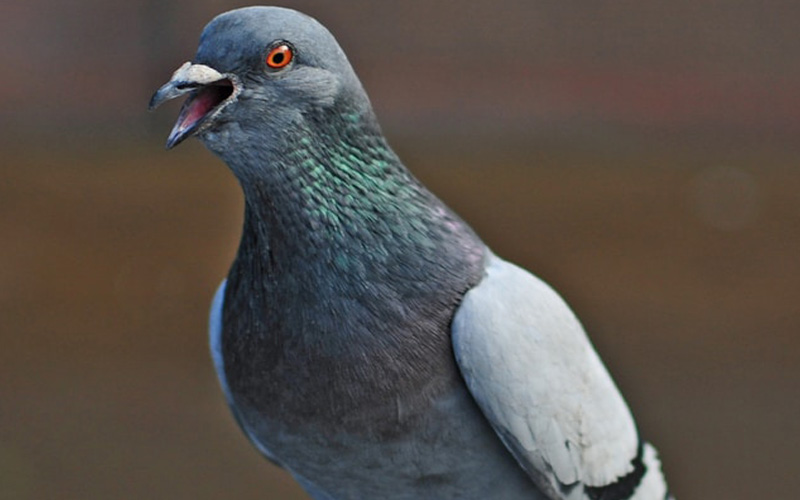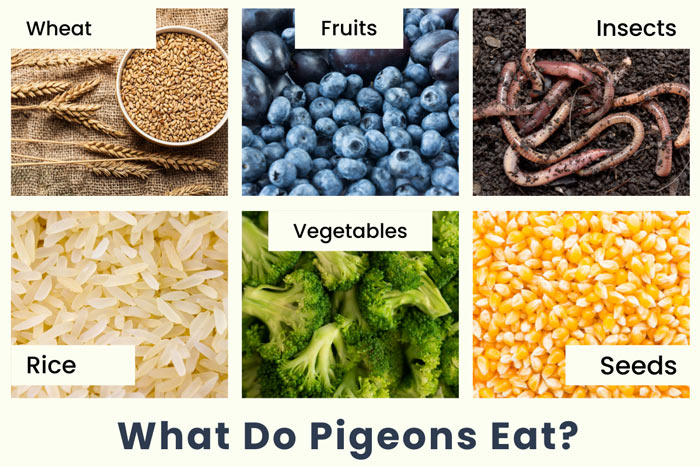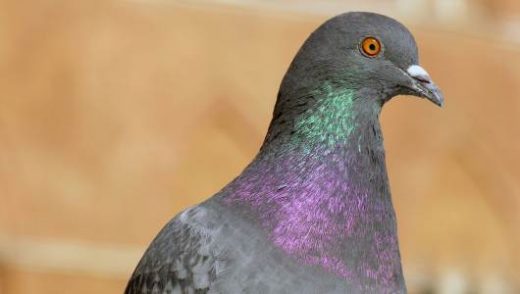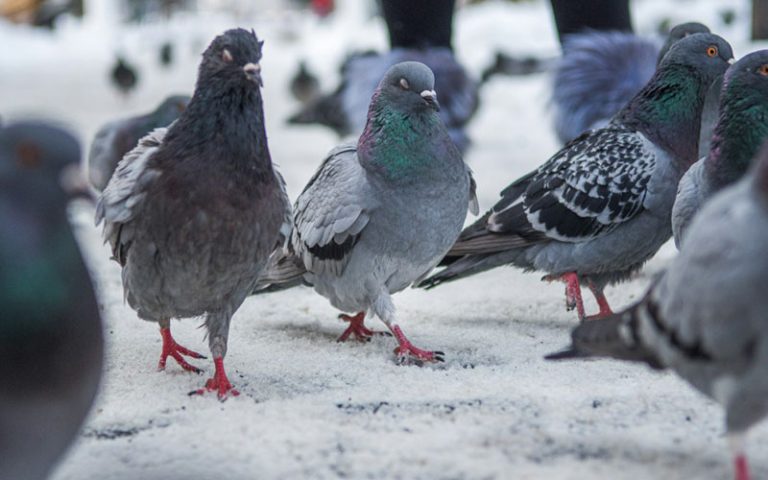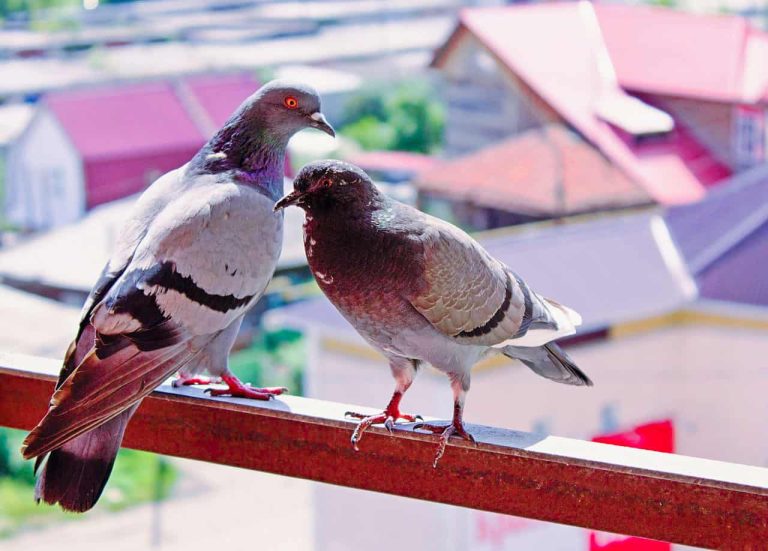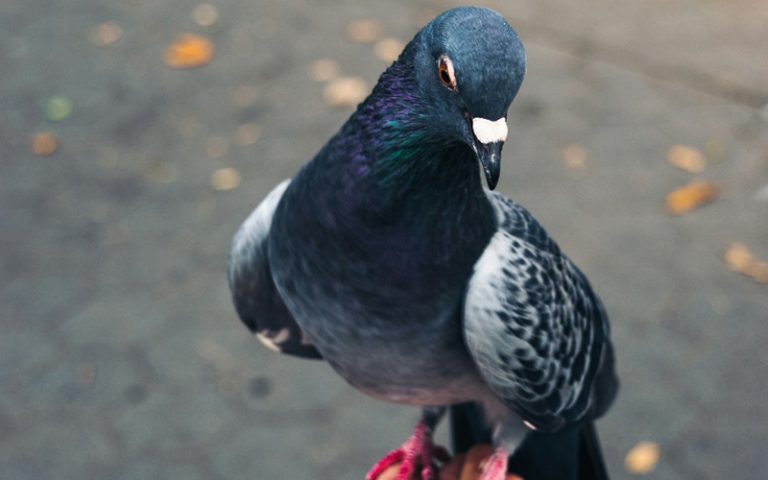Why Do Pigeons Coo? – Love, Territory, and Communication!
Pigeons coo as a way to communicate and establish connections with other pigeons. Their cooing serves various purposes, such as expressing contentment, signaling a desire for companionship, and establishing territory. Essentially, pigeons coo to convey emotions and maintain social bonds within their flock.
Why Do Pigeons Make Noise?
Pigeons make noise for various reasons, and their vocalizations serve different purposes in communication. Here are some common reasons why pigeons make noise:
- Communication: Pigeons use vocalizations to communicate with each other. This includes cooing sounds, which are often associated with mate attraction and courtship. Pigeons may also coo to maintain contact with their mate or other members of their flock.
- Territoriality: Pigeons can be territorial, and they use sounds to establish and defend their territory. Cooing and other vocalizations may signal to other pigeons that a particular area is claimed.
- Alerts and Alarms: Pigeons may produce specific sounds to alert others in the flock about potential dangers or threats. This helps them stay vigilant and respond collectively to perceived risks.
- Parent-Offspring Communication: Parent pigeons use specific sounds to communicate with their chicks. These sounds can convey reassurance, encouragement, or warnings, helping to maintain the connection between parents and their offspring.
- Expressing Discomfort or Pain: Pigeons may make distinctive sounds if they are in pain or distress. These vocalizations can serve as a signal to other pigeons or animals in the vicinity that something is wrong.
- Social Bonding: Pigeons are social birds, and their vocalizations play a role in reinforcing social bonds within the flock. Different cooing patterns may signify various social interactions and relationships.
How Does a Pigeon Sound?
The sound that a pigeon makes is often described as a soft cooing sound. It can be a gentle and repetitive “coo-coo” or “coo-roo” sound. Pigeons use these cooing sounds for communication, particularly during courtship or to establish their presence in an area. Keep in mind that there can be variations in the sounds depending on the species and individual bird.
Why Do Pigeons Coo Constantly? – 6 Reasons
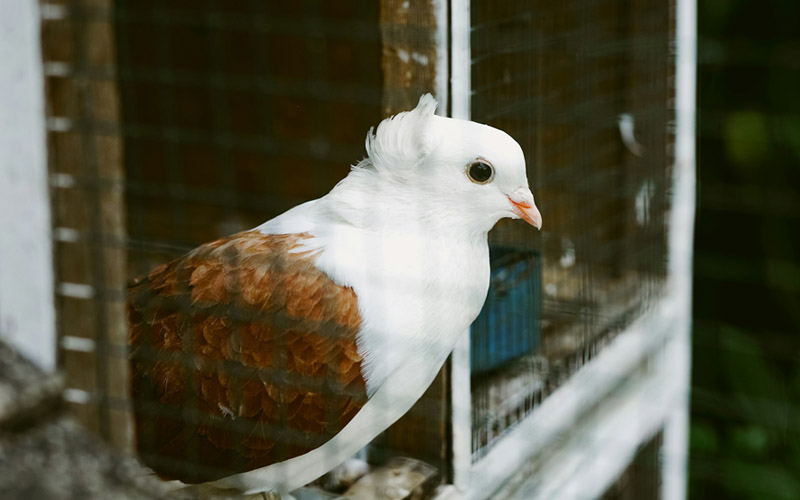
Pigeons, those ubiquitous birds we often see perched on rooftops or strolling around city squares, are known for their distinctive cooing sounds. But why do pigeons coo constantly? Let’s explore six reasons behind this behavior.
1. Communication and Bonding
Pigeons coo to communicate with each other, much like humans talk to convey messages. Their cooing serves as a means of bonding within their social groups, whether it’s a pair of mates or a larger flock. This vocalization helps them establish and maintain relationships, express affection, and even coordinate activities such as nesting and foraging.
2. Territorial Defense
Cooing can also serve as a form of territorial defense. Pigeons are known to be quite territorial creatures, especially during breeding season when competition for nesting sites and resources is fierce. By cooing loudly, they assert their presence and warn other pigeons to stay away from their territory. This vocal display helps prevent conflicts and maintain boundaries within their environment.
3. Courtship and Mating Rituals
Like many other birds, pigeons use vocalizations as part of their courtship and mating rituals. Male pigeons often coo to attract female partners, showcasing their health and vigor through their vocal performances. The melodious cooing acts as a seductive call, enticing potential mates and signaling readiness for breeding. In response, female pigeons may also coo softly to indicate their interest and acceptance of the male’s advances.
4. Nesting and Nest-Building
Pigeons coo during the nesting and nest-building process as a form of communication between mates. While one partner gathers nesting materials, the other may remain at the nesting site, cooing softly to maintain contact and provide reassurance. This coordinated effort helps strengthen the bond between mates and ensures the successful construction of the nest, which is essential for raising offspring in a safe and secure environment.
5. Parental Care and Communication
Once eggs are laid and chicks hatch, cooing takes on a new significance in the context of parental care. Both male and female pigeons coo to communicate with their young, offering comfort, guidance, and food. The gentle cooing of parents helps create a calming environment for the chicks and reinforces the bond between family members. Additionally, cooing serves as a way for parents to locate their chicks within the nest and maintain contact while foraging for food.
6. Emotional Expression
Beyond its functional roles in communication and behavior, cooing in pigeons may also serve as a form of emotional expression. Pigeons are intelligent birds capable of experiencing a range of emotions, including happiness, contentment, and distress. Their cooing patterns can vary depending on their emotional state, with softer coos indicating relaxation and satisfaction, while louder and more frequent coos may signal excitement or agitation. In this way, cooing allows pigeons to express their feelings and connect with others in their social group.
Why Do Pigeons Coo in The Morning?
Pigeons coo in the morning as a way of communicating and establishing their presence. The soft, rhythmic sounds serve as a form of social interaction, signaling to other pigeons in the area. This morning cooing can be attributed to their natural instincts, expressing a sense of well-being and territorial ownership. It’s akin to a friendly neighborhood announcement, helping pigeons connect and coordinate within their community. Overall, the morning cooing ritual is a simple, yet effective, means for these birds to convey messages and maintain social bonds as they start their day.
Why Do Pigeons Coo at Night?
Pigeons coo at night primarily to communicate with other pigeons and establish their presence. The soothing cooing sound serves as a way for them to maintain contact and reinforce social bonds within their flock. Additionally, the darkness and quiet of the night create a more peaceful environment for pigeons to exchange these soft calls without the interference of daytime activities. This nocturnal cooing behavior is a natural instinct rooted in their social nature and plays a crucial role in maintaining connections within the pigeon community.
FAQ
Not every pigeon coos. While many pigeons make the familiar cooing sound, some may produce different vocalizations or remain quiet. Pigeons use a variety of sounds to communicate, including cooing, cooing variations, and soft clucking. The diversity in their vocal expressions reflects the range of communication methods among these birds.
Pigeons usually coo for about 5 to 15 minutes, but the duration can vary. Their gentle cooing sounds serve as a form of communication, expressing contentment or attracting mates. The rhythmic coos are a common and soothing feature of their behavior, often heard during daylight hours.
Pigeons tend to coo more during daylight hours, with increased activity in the early morning and late afternoon. These birds are most vocal when searching for food, communicating with other pigeons, or establishing territory.
You can train pigeons to coo on command. Start by consistently rewarding them with treats when they coo as desired. Use a distinct command or gesture each time to associate with the behavior. Be patient and repeat the training regularly for positive results.

